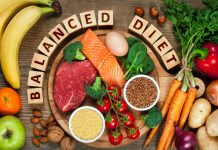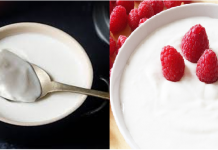There are a number of schools of thoughts and opinions when it comes to nutrition, health and well-being. More often than not, these will leave you confused and a little at sea. Not to worry if we are to go about this slowly. Let’s have a go at busting 8 of the most popular nutrition myths we hear so very often everyday. You might even be surprised to find that certain nutrition professionals have a penchant for demonizing amazingly healthy and nutritious foods.
In our opinion, it’s best to strike a median path and excesses of any kind are a definite no-no of nutrition. Let’s go food myth-busting and see how some of the most popular nutrition myths have made most healthy foods seem like the worst culprits.
8 popular nutrition myths – Busted!
Myth: Eggs are very unhealthy.
Sure, eggs contain cholesterol and for years, nutritionists have been telling you to keep them at an arm’s length if you want to keep the extra kilos and heart disease risk at bay.
Fact: Eggs raise levels of “good” cholesterol and do not contribute to heart disease risk. They are packed with antioxidants and proteins and are one of the most nutritious foods you can find.

Myth: Saturated fat is a serial killer.
Decades ago, someone somewhere decided that consuming excess of saturated fat is bad for you. Something that was an unproven theory ripened into conventional wisdom. Well, today, that theory has been ground in the mud and studies have proved that saturated fat and heart disease are far away from each other.
Fact: Saturated fat increases the amount of “good” cholesterol in your blood and converts dense LDL into Large LDL (which is harmless). Consume natural foods that have high saturated fat content in moderation. Too much could have adverse affects. 
You May Also Like: 10 Weight Loss Myths that Will Make You Question Everything
Myth: Eat large quantities of grains.
This one has always been a puzzler. You are told that consuming larger quantities of grains will help in digestion and provide a lot of nutritive value.
Fact: Grains are low on nutrition in comparison to vegetables. They also have a high percentage of phytic acid that binds all the essential minerals that enter your intestine. In effect, this prevents them from being absorbed by your system. Modern-day wheat is full of gluten which is known to cause tiredness, bloating and stool inconsistency. But then again, consume grains but limit the consumption.

Myth: Excess of protein damages the kidneys and bones.
It is true that protein consumption ups calcium excretion from bones. But that is a short-term effect.
Fact: In the long-term it improves bone health and reduces the risk of fractures. Proteins will also not cause any kidney damage in an otherwise healthy person. A high- protein diet is your shield against osteoporosis and kidney damage. It alleviates symptoms of diabetes and reduces blood pressure levels too.
Myth: Low-fat foods are excellent for you.
You are told to stick to low-fat foods as they will help you stay trim and fit. Of all the popular nutrition myths, this one is an all-time favourite.
Fact: In most cases, low-fat foods are highly-processed products that are packed with artificial sweeteners, corn syrup and sugar. These additives are meant to compensate for the loss of taste and flavor when natural foods are stripped of fat. These low-fat products are directly linked to diseases like metabolic syndrome, obesity, depression, diabetes and heart disease amongst others.

Myth: Eating smaller meals through the day is good
Interestingly, this is one myth that has appeared all of a sudden over the past few years and now dons a garb of persistence. The belief is that eating smaller meals right through the day keeps metabolism levels high.
Fact: Very frankly, it makes no sense. The metabolism increases minimally while food is being digested. However, at the end of the day, the total amount of food that has been consumed determines how much energy is actually used, it’s not the number of meals that does that. It’s also a fact that eating smaller meals will leave you feeling less satiated and you might be encouraged to snack too often. Another important point to note is that the human body is not naturally conditioned to be fed continuously and keeping the system free of food helps the cells clean-out waste products more effectively. The best course of action is to have 3 decent-sized meals per day and then complement those with a couple of small and healthy snacks. Snacking right through the day will only over-stress your digestive system and never give it any time to rest.

Myth: Concentrate on carbs for calorie content
This is one of the oldest and one of the most popular nutrition myths. Conventional wisdom says that a low-fat diet is the ideal one and that carbs should account for 50-60% of your calorie intake. Add grains and sugars and keep eggs and meat at a minimum.
Fact: This diet might be good for people who are naturally lean. But for the obese, or for those suffering from diabetes, carb consumption like this is dangerous. Studies have shown that it is best to stick to a low carb and high-protein diet. 
You May Also Like: Busting Personal Training Myths Once And For All
Myth: Low-carb diets are harmful
This one takes-off from the previous point and if you read it carefully you will know that it is not a contradiction. The media as well as nutritionists have contributed towards making a low-carb diet sound like it’s the culprit for all health-related issues.
Fact: But depending on your body type, a low-carb diet can do wonders for you as it reduces body-fat and lowers blood pressure. It brings down sugar levels and improves diabetes symptoms. Another good thing about low-carb diets are that they don’t really restrict the quantity of food you can eat. This leaves you feeling less hungry and you automatically have fewer food cravings.

Eat smart, eat right
All this talk about popular nutrition myths can get a little confusing at times and you might be left in a limbo when it comes to making the right food choices. Opt to take the smart route. If need be consult a nutritionist and get a tailor-fit food plan and track your progress. Consume all foods in moderation, relish everything you eat, reach for natural foods and quit counting calories in every morsel you pop into your mouth. If you like this article then don’t forget to like and share. Feel free to share your thoughts with us in the comments section below.


 Traqade
Traqade
































Really appreciate you sharing this fantastic post with us. I’m incredibly astonished to read this because it’s both a terrific site and a great topic.
I can’t express how delighted I am to have discovered this incredible [pet groomers supplies](https://finepethealth.com/) site. As a devoted pet owner with fish, horses, and poultry, I’ve always struggled to find a store that meets all their unique needs. But this site has it all! The extensive range of supplements is impressive, and their commitment to providing top-quality products is evident. With their user-friendly interface and well-organized product categories, shopping has become an absolute pleasure. I can’t recommend this site enough to fellow pet lovers.
I found the perfect template for compare and contrast essay compare and contrast essay through an essay writing service. It made organizing my thoughts and arguments a breeze!
Jack Listens, a food department store in the United States offers a survey for customer feedback. By participating at https://www.jacklistenscom.page/, customers have a chance to win two Tacos coupons as a reward.
I can’t believe I went so long without using Invoice Maker https://apps.apple.com/us/app/invoice-maker-invoices/id6449437040 on my iPhone. It’s seriously the most convenient app for creating invoices. I love how easy it is to input all the necessary details, like client information and payment terms. Plus, the templates are so sleek and professional-looking. It’s definitely saved me a ton of time and hassle when it comes to billing my clients. If you haven’t tried it yet, I highly recommend giving it a go!
I like how straightforward and clear the platform is, making it easy for anyone to use. Navigating apk android is stress-free, and I never feel overwhelmed by unnecessary features. The focus on user experience is evident, and the platform’s reliability means I can enjoy my betting sessions without any interruptions.
https://sprunki.net/
Incredibox Sprunki is a creative mod of the classic Incredibox game, blending Sprunki’s unique style with interactive beat-making. It offers fresh sounds and visuals, perfect for fans looking to remix their musical experience.
A client visits a Jack in the Crate area and orders a burger feast. They notice that the burger is somewhat cold and the staff appears to be surged. They choose to finish the Jacklistens review to share their experience. https://jecklistenscon.org/
Change, progress, and setbacks In the early 1990s, Jack in the Box faced a serious crisis when an E. coli outbreak linked to undercooked meat sickened hundreds and led to multiple deaths.
This was a turning point that laid the foundation for the retail giant we know today.
The “Jack Box” mascot has been featured in everything from late-night comedy sketches to internet memes, further solidifying the brand’s offbeat charm.